At 7 a.m. on October 7, Avida Bachar first heard shooting outside his house. He immediately called to his wife, Dana, and their two children to run with him into their safe room. Recounting their harrowing experience to Israeli television from his hospital bed, he said there were “eight hours of hell” before Israeli soldiers came to save them. Arab terrorists fired a barrage of bullets that penetrated the metal door of the safe room and hit his son, taking his whole arm off. Bachar took off his belt and made a tourniquet to stop the profuse bleeding as much as he could. After some time, the terrorists lit the house on fire to try to smoke the family out.
The Bachars had pots and pans in the safe room, and they urinated into the pots so that they could wet towels and hold the liquid over their noses, enabling them to survive the smoke inhalation. An hour later, the terrorists shot from another small opening and killed his wife with a shot to her head. Bachar watched his son, still bleeding profusely from his arm, slowly bleed to death. Another barrage of bullets through the metal door shot off one of Bachar’s legs. He wrapped it with his clothing and lay there with his daughter, desperately waiting for hours until soldiers arrived to rescue them. Bachar remains in the hospital with a medically amputated leg. He and his daughter witnessed it all and live now with their loss – and the horrific memories.
In another case, while frantically awaiting any news of their missing 23-year-old daughter, Tiferet, the Lapidot family spent the week of October 7 in a tailspin of emotion, pleading through media interviews around the world for Hamas to return their daughter.
As Canadian citizens, they implored the Canadian government to intervene. After 10 days of praying, crying, worrying, and advocating, of feeling overwhelmed and scared, they learned that their daughter had been murdered at the Supernova music festival. Her body had not been identified for days.
Israelis always lived under the shadow of terror, but October 7 changed everything. While thousands of Israelis have survived and found a way to live after devastating terror over the years, in the past month more than 1,200 Israelis have been killed, more than 5,000 wounded, and some 240 are still being held in Gaza by Hamas.
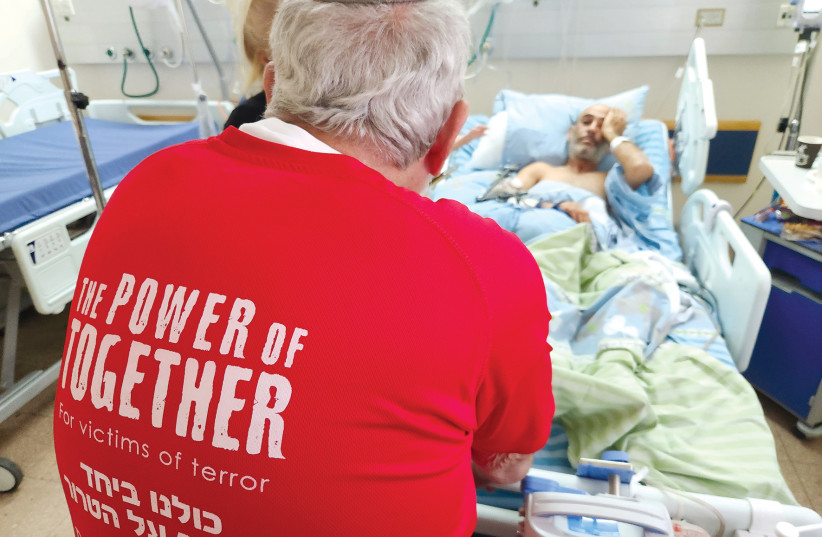
OneFamily
OneFamily has been helping terror victims and their families for the past 22 years, providing social, financial, and emotional assistance to victims of terror and to their families – from the moment they learn of the loss of a loved one and continuing for the rest of their lives.
The organization, which is almost exclusively privately funded, has invested over $75 million on financial aid and a wide array of services, such as healing retreats, summer camps for bereaved and orphaned children, therapies, paired volunteers, mentors, and holiday gifts and events.
They have now seen the number of wounded and bereaved requiring their unique assistance double overnight.
Everyone was affected by the heinous attacks perpetrated on October 7. An entire nation is traumatized and in need of comfort, support, and healing tools to enable them to once again become fully functional, and yes, even return to hope.
“I now understand that the past two decades of OneFamily’s providing services to the bereaved and wounded from terror attacks was all in preparation for October 7,” says Marc Belzberg, the organization’s chairman and co-founder. “Everything we have done, everything we continue to do, had to be learned and developed in order for the nation to get through what is happening now. There is so much need. While now is the most critical time, the need will continue to be revealed, with a need for all of us to help, for a long time to come.”
In the beginning
In August 2001, a terrorist walked into a Sbarro pizza restaurant in downtown Jerusalem and detonated a powerful bomb hidden in a guitar case, killing himself and 15 others, mostly children, and wounding 185 people.
Marc and Chantal Belzberg read each tragic story of each damaged family, every surgery, every loss, with broken hearts, feeling helpless. In searching for the best ways to help, they realized that although there were medical rescue organizations, financial stipends, and institutions to sort out where orphans would live, what was missing was an organization to help with grief, bereavement, and trauma. They found no single institution that supported each family to help them rebuild their lives and move forward.
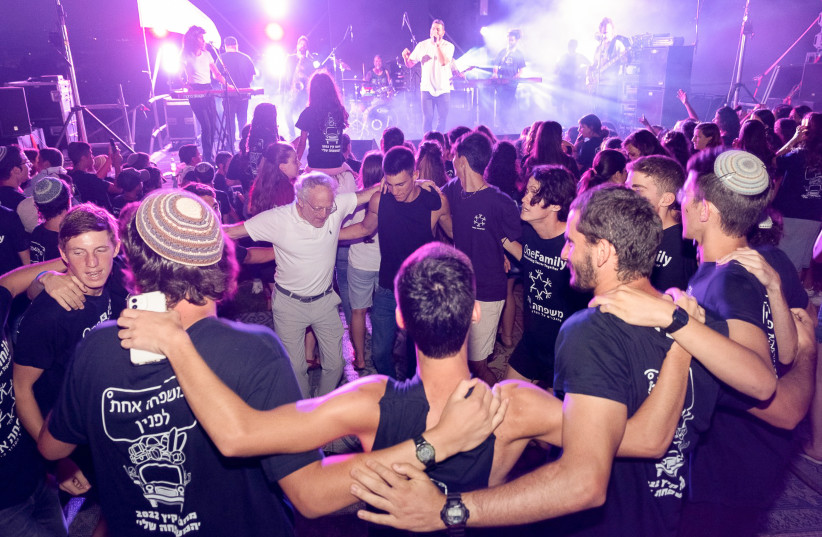
“It was then that we looked into what the Israeli government was doing to take care of its civilian and military citizens whose family members were murdered by terrorists simply because they were Jews living in the land of our forefathers,” Marc Belzberg explains.
“We began to understand that the government had a sophisticated and necessary financial relief set-up to help each family, compensation that is admirable, helpful, and important. But it’s not love. It’s not encouragement or emotional support, which anyone suffering a loss needs as well. We felt that being part of the Jewish nation obligates us to care for one another, so there must be a way to provide this as well.
“We thought that if we could find a way to create a privately run institution, we could apply a different set of considerations for each tragic case and design a tailor-made set of services for each individual. This understanding was the beginning of our journey,” he relates.
Developing a successful recipe
Over the years, OneFamily has been compelled to develop expertise on the cycle of shock and grief, the consistent needs of families, and the services and techniques – the formulas – for what will most help individuals and families to not only survive devastating loss but also to return to a functional life that includes helping others manage similar tragedy and pain.
Yonatan Amit is a psychologist on the OneFamily staff. “We continued to learn what a mother who lost a child needs in order to recover and what a child who lost a parent or tragically both parents needs to overcome,” he explains. “This starts by getting to the heart of the emotional and psychological damage he or she is experiencing. We’ve discovered that there is a way out of the crippling emotional pain that takes over their lives. We can’t bring back the person they loved and lost, and we can’t give them back the life they would have had if that tragic, life-altering moment hadn’t happened. But we can give them a reason to live, a way to find happiness, to experience joy, and even laugh again.”
Through their research and learning-by-doing, OneFamily’s team of trained social workers, case managers, and volunteers have come to understand that while financial security is critical, it’s not sufficient to meet the unique needs of victims of terror. OneFamily has augmented the government’s fixed amounts of financial aid by distributing millions of dollars to thousands of victims on a unique needs-based system of circumstances. But they have learned “what works” beyond financial compensation.
“We discovered that the half-year of government-subsidized therapy may help with the initial stages of grief, but it doesn’t build a lifelong support system needed to develop resilience. It cannot facilitate the building of community that not only helps one to heal but also thrive,” Marc Belzberg says.
Dr. Eddy Pakes, a well-known bereavement psychiatrist in Toronto, agrees. “Man is a social being, and the most important thing one needs in order to recover and fill that huge hole in one’s heart is having a dedicated and loyal friend, or better yet, a group of friends who have experienced the same form of loss. With an environment that is safe and makes the survivors feel understood, they can remove their mask, totally open their heart, and fully express their deepest feelings. This is where the real, long-term healing happens. Creating these environments and building communities of support and understanding works. It heals. We see the results. And sadly, we feel that the whole country is going to need to learn this together with us now and support each other as never before.”
Through this approach that they have developed and expanded over time, Chantal Belzberg, OneFamily’s CEO, describes as “miracles” some of the many stories of healing they have seen.
“A tour guide who was badly wounded in a terror attack and unable to work for five years was traveling with a group of the wounded and bereaved, feeling comfortable and supported, and chose to take the microphone and lead the tour,” she says. “He subsequently was able to return to work. We witnessed a group of bereaved mothers who hadn’t danced since their loved ones were murdered, get up and dance together during a seven-day trip for bereaved parents to Morocco. Or mothers who lost a child and could no longer make their child’s favorite dish get together to talk about their child and cook those favorite meals again, returning a part of their family tradition, bringing joy instead of tears.”
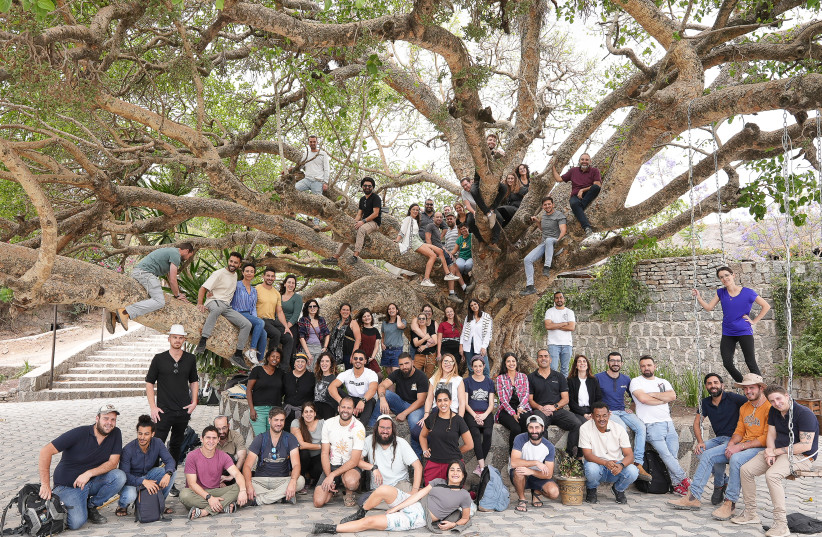
In January, OneFamily sponsored a therapeutic trip to Ethiopia for victims who are now in their 20s and 30s and who have all lost a parent or a sibling. Representing a cross-section of Israelis – husbands, wives, fathers, and mothers – they were individuals carrying the pain of loss and bereavement who, even after years, failed to find closure. Along with a team of experienced therapists, caseworkers, and professional counselors, the participants embarked on an intense journey designed to help redefine who they are, their foundations, and what they believe and want. With the unique atmosphere, landscape, and rhythm of life reminiscent of a different era, it was transformational for all the participants, changing them as individuals and creating a community. OneFamily plans to repeat this journey for many of the 25- to 35-year-olds who are newly bereaved.
Bringing battle-tested solutions to new challenges
Nava Formansky runs the Bayit Cham [warm home] One Family Center in Ra’anana, where she has worked with families affected by terror for the past 21 years. “Every day we have dozens of volunteers who go to four hospitals in the central region of Israel to visit the wounded, encourage them, and see to their needs. That is how I discovered that a 70-year-old wounded man at Ichilov Hospital, whose house was set on fire and destroyed by the terrorists on October 7, had been left with literally nothing. Within 24 hours, we made sure to provide him with everything he needed,” she says.
“Our professional team is doing more of what we have always done – but there are new immediate needs that OneFamily has had to adapt and take on in order to be responsive to this new reality,” Marc Belzberg explains. “Our professionals are not only inundated with what we consistently do, but we are also now managing hundreds of volunteers who have been added to the team, assessing the needs of the evacuees from the North and South who have been contacting us for help. We continue to make sure they don’t feel alone, trying to match what they are missing physically and emotionally with ways we can help. We have been collecting and distributing clothes and food to soldiers and victims; sending food boxes to army bases; baking and cooking for the wounded in hospitals and for the displaced. We are currently distributing 52 duffel bags of toys from the US to children who are bereaved or have wounded family members.”
One critical aspect of OneFamily’s work is identifying a range of needs that are falling between the cracks as the current situation overwhelms government agencies. They set up a 24/7 Emergency Response Hotline to deal with the numerous requests that continue to pour in. “Before, we were the ones who turned to people on our own initiative,” says Chaviva Weinberg, who runs the OneFamily hotline. “The situation has caused people, such as residents of southern Israel, to call us for everything, whether they need help finding a place to live, financial aid, psychological aid, handling money, finding babysitters for the children, and much more.”
The Emergency Response Hotline has already helped thousands of callers. “We publicized it on every possible platform, and since doing so, we have been deluged by calls. As an NGO that provides help during normal times, we have taken up the challenge. Calls range from help with the needs of the displaced in the hotels to the wounded or, sadly, those who only now are learning that their loved one was found murdered and is not among the kidnapped. We often help to overcome bureaucracy, on an operative as well as a technical level. We have scores of professional volunteers who examine the needs of those who call and direct them to the place that deals with that specific issue.”
Unprecedented challenges
For the first time since its founding, OneFamily finds itself meeting bereaved families all over again. While the trust and reliance are already there, the loss and trauma greatly affect the OneFamily team, especially those who have gotten to know and love these families over the years.
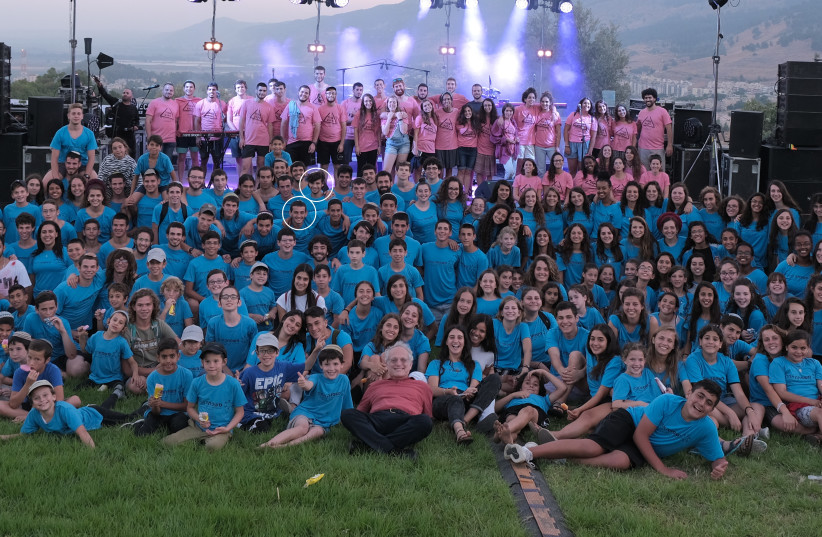
Second Lt. Pedaya Mark was killed in combat with Hamas terrorists in the Gaza Strip while serving as an officer in the Givati Brigade. He was the son of Rabbi Michael (Miki) Mark, who was murdered in a shooting attack near the Hebron Hills in 2016. Many don’t know this, but a bereaved son may not serve in the IDF without the written permission of the surviving parent. His mother consented because it was his dream to serve.
Pedaya and his family have been participating in OneFamily programs since that tragic loss in 2016 and were part of the organization’s “family” in every way. “Pedaya’s death has shaken the organization to its core – we are all mourning,” says Marc Belzberg. “His entire family is part of OneFamily, and we find ourselves part of the very process we created. Mourners helping the mourners.”
The OneFamily staff wishes that Pedaya’s story was unique. Ketty Feldman, OneFamily’s southern region coordinator, has not had a moment’s rest since the war broke out. She is facing challenges on a scale she could not have imagined. Feldman has been most affected by these calls from families who were already bereaved, at whose door tragedy knocked again as they lost another family member to terror. Some had lost a loved one many years ago, some not that long ago.
“I recently experienced two very heart-wrenching visits to families in Beersheba.” She describes, “one had lost a son previously and has now lost another and his wife, both slaughtered in their safe room. Their seven-year-old hid in the closet and was saved by a miracle. But so many families that we have gotten to know and have helped have new stories of tragedy and loss. With the devastating numbers, it is as inevitable as it is inconceivable.”
Elad Mosheshvilli’s brother Nati was killed in a terror attack in 2012. Mosheshvilli became part of OneFamily’s youth division, where he met with his group of bereaved friends several times a year. They became his best friends and his source of support and strength. Now 17, he spoke this summer, describing OneFamily as his second family. “It’s truly my home, one where I always feel more comfortable,” he said. “My friends at home don’t completely understand me when I speak to them about the brother I lost. But at OneFamily, they just look me in the eyes and understand what it’s like.”
On October 7, Mosheshvilli’s second brother, Michael, was killed in action.
Healing and growing together
One initiative OneFamily developed is enlisting veteran bereaved families to help those newly bereaved. “We try to visit each family together with a bereaved father or mother who have lived through their own experience. In the end, that is what leads the newly bereaved to open up. I was at the home of a recently bereaved mother together with a mother who lost her daughter in the terror attack at the Beersheba bus station 20 years ago. The mothers embraced, and the two began to talk. No matter what we say, we cannot console them. When someone who is a bereaved parent or relative arrives, that is what has the most significant impact.”
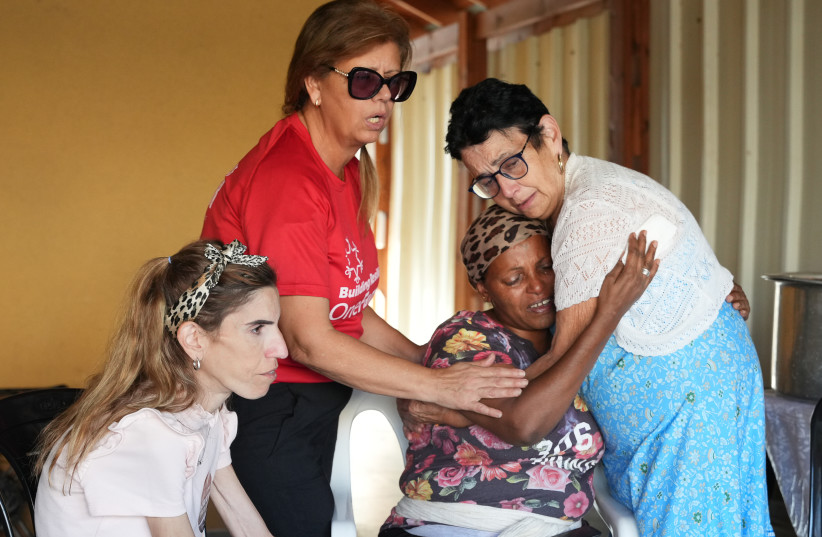
Throughout the month of November, OneFamily is hosting events at hotels in Haifa, Tel Aviv, Ashdod, Netanya, and Jerusalem. Each event will include OneFamily therapists and other staff and will be an opportunity to explain what OneFamily is and provides.
“We need to get to know every single person individually and begin a process of building trust and assessing the individualized care for them. We hope to do this by scaling up our team,” Marc Belzberg explains. “But this is just the first step. Building on our success of families helping families, we hope to get to know these families and match as many as we can with a family that has been bereaved and is familiar with what OneFamily does. This will give them a powerful connection to others that relate to their experience and can be a help and a source of support for years to come.”
What it means to be ‘one family’
“When we began all those years ago, we could never have imagined we would be serving this many people. That terror would become so prevalent, so pervasive here,” Marc Belzberg says. “In those early days of our formation, we were trying to decide on the appropriate name for our new organization. Jeff Kahn, a professional consultant, suggested OneFamily. At the time, it expressed for us that Jews of the world have to remember that Jews in Israel are their brothers and sisters and that each of us has to care for them as they would care for their own children or siblings. Because we are one family – and need to care for each other as such.
“Over time, our name has taken on an additional deeper meaning. The families shattered by the murder of one or more members can join in all of the OneFamily’s activities, weekend retreats, and seminars and Jewish holiday events. Each one in the appropriate group for them to bond with, and groups of the shattered families join together, brought together by a common fate. It is only through this coming together that they can become a new, self-supporting, functioning family.
“The people of Israel can come together to heal each other. We have no choice.“
Today, Marc Belzberg hopes OneFamily can achieve what is needed to help what feels like a countless number of fellow Israelis: “We – the Jewish world – need to recognize that creating a support network and reaching every single family that needs connection, needs support – needs us – is critical to our survival as a nation. It is critical to winning this war and will determine how we can rise up from this horrible tragedy, this costly, difficult war, and return to a functioning, hopeful, and resilient society.
“The help we get from around the world to meet these needs now is going to determine how healthy our tomorrow will become. It’s a proven fact that in both trauma and grief, the sooner healing techniques are undertaken, the easier and quicker it is to heal. One needs to deal with it before it becomes part of one’s being. We need the necessary resources and are doing our utmost every day to successfully take on this gargantuan task.” ■
The Jerusalem Post and OneFamily are working together to help support the victims of the Hamas massacre and the soldiers of Israel who have been drafted to ensure that it never happens again. To become a partner in this project, and donate to OneFamily, click here.
For more information or to support OneFamily, visit www.onefamilytogether.org
